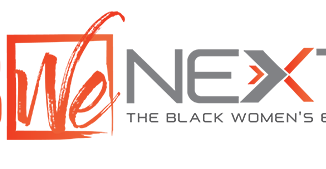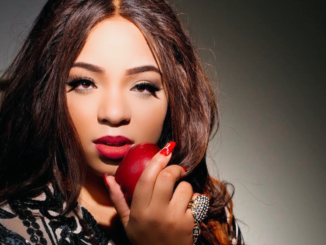
By Staff
How did you begin singing?
I honestly can’t pinpoint when I started singing. I feel like it was always something I was doing as long as my memory serves me. I can remember getting in trouble for singing at the dinner table is early as 4yrs old. However, I will say that I have had a relationship with my voice in a formal way since I was in third grade when I started singing in choir in school. And I was always going out of my way to find different groups that I could be in whether that was in church or an elective to continue to grow my voice.
When I look back on that now, my songbird phase is my fondest time with my voice. I think it was sometime around 10yrs old that I started being allowed to stay home alone. I would just sing at the very top of my lungs, trying to figure out where the edges of my voice were. I can still remember somebody telling me that they bet I could sing the phonebook. So I would try and sing the newspaper when I was young.. just trying to build melodies out of sentences. It’s silly to look back on now, but I know it was a pivotal moment in my vocal journey.
What is your favorite song to sing and why?
This question is hard, mainly because as a songwriter, I see value in so many songs, and will continue to find value in so many more.
When I think of the great songs, I think of the people that I heard performing them. As a vocalist first and foremost, I can recognize that what makes those songs special is the performance and the instrument that delivered them..
A song for you by Donny Hathaway
This song always sticks out and I know it’s because the very first time I heard it my mom pulled me into her in my dad’s bedroom, where they were watching a live performance of this song. It was an early season of American Idol and my mom sat me down and said now this is how you perform someone else’s song.. and this is a song that people need to hear.
What does success look like for you?
Success for me is something that I continue to create a clearer picture of every single day. I am a person of simple needs and wants and so it’s hard for me to come up with a list of goals sometimes. I am successful when, etc. but in this world that we live in today success would mean having the financial freedom to raise a family, and to know that I am able to provide for their needs and their dreams.. leave generational wealth that can help future generations of my family also do the same.
What has been the most challenging aspect of singing professionally?
I have a hard time with this question because I believe that it is the culture that I actually have the hardest time with. The industry is not ever been and I don’t know if it ever will be the healthiest to work in. I find the hardest part of being a professional musician, is the fact that I exist in a market, and an industry, where you are constantly trying to prove your worth for services rendered. Every negotiation you bring your ego and need to the table. There is no universal rate that’s been adjusted or could be to the inflation of our current economic situation.. and that is what allows you to actually reinvest into the music and support that art and inevitably yourself and family. It’s all one big guessing game.
How much each gig cost is a series of questions, is the risk worth the reward, how much are you willing to sacrifice physically and emotionally to create space for those opportunities, the list goes on.. but I would say that in a world where financially people are trying to ask themselves how they can afford groceries, existing in an industry that hasn’t seen a universal pay increase since the early 80s is definitely one of the largest hurdles that I face in my career. The standard of entertainment rate for performance doesn’t match the current market value of travel or expenses that one incurs as their career grows.
What are your thoughts on how country music is being embrased by a larger audience?
I think that it’s an opportunity to have a greater conversation. I’ve been listening to country music on and off since I was little and I can tell you that it’s been intriguing to see how much R&B and hip-hop culture has bled into main stream country over the last 15 years. I think that it growing its fan base or even just its exposure of audience is a part of the positive sides of equitable opportunities. It’s really easy to sit around and talk about divisive things and where it started and where it’s going, but I think the truth of it is anything that brings us together or that broadens horizons is inevitably a good thing and I hope that we can say that it’s a great thing for many peoples careers like mine.
What stage is in the world would you love to perform and what song will you sing?
A question like this wakes up the boy that started by playing around fires with his friends. I did it just because it felt good to have a instrument in my hands and be noodling around and humming while listening to the sounds of my friends being together. It’s hard to imagine that getting so big that it can be on the stage at the Grammys, but I see myself there. I see myself at a CMT crossroads performance. I see myself playing headlining slots at some of the most household name festivals in the country. I do, however, know that I will always be playing next to fires and telling stories. That’s what I love about the music that I play it can authentic go anywhere and it’s still has the same effect. These are stories being sang to people who either need them as a salve to the complex pain that life creates, or simply to remind them that they are not alone.. Hell, if anything and remind them that they are even better company.
Bio :
Hailing from the hills of Appalachia, Scott T. Smith’s soul was filled in the West Virginia hills. On a Saturday morning Scott’s childhood home vibrated with a variety of music from the greatest doo wop groups to classic American standards. He blends these worlds effortlessly to create a tone as unique as he is; an old soul telling stories in a modern world.
He bounces through his lyrics in a display of vocal range that lends to a meshing of rhythm, folk, blues, and southern gospel to create a genre all his own, which he refers to as folk-n-blues.
The duality of his storytelling will wind through your brain reminiscent of old friendships, love lost, and the Hollers of Appalachia. His music leaves his listeners feeling rejuvenated like an evening by the fire underneath Mother Moon.










